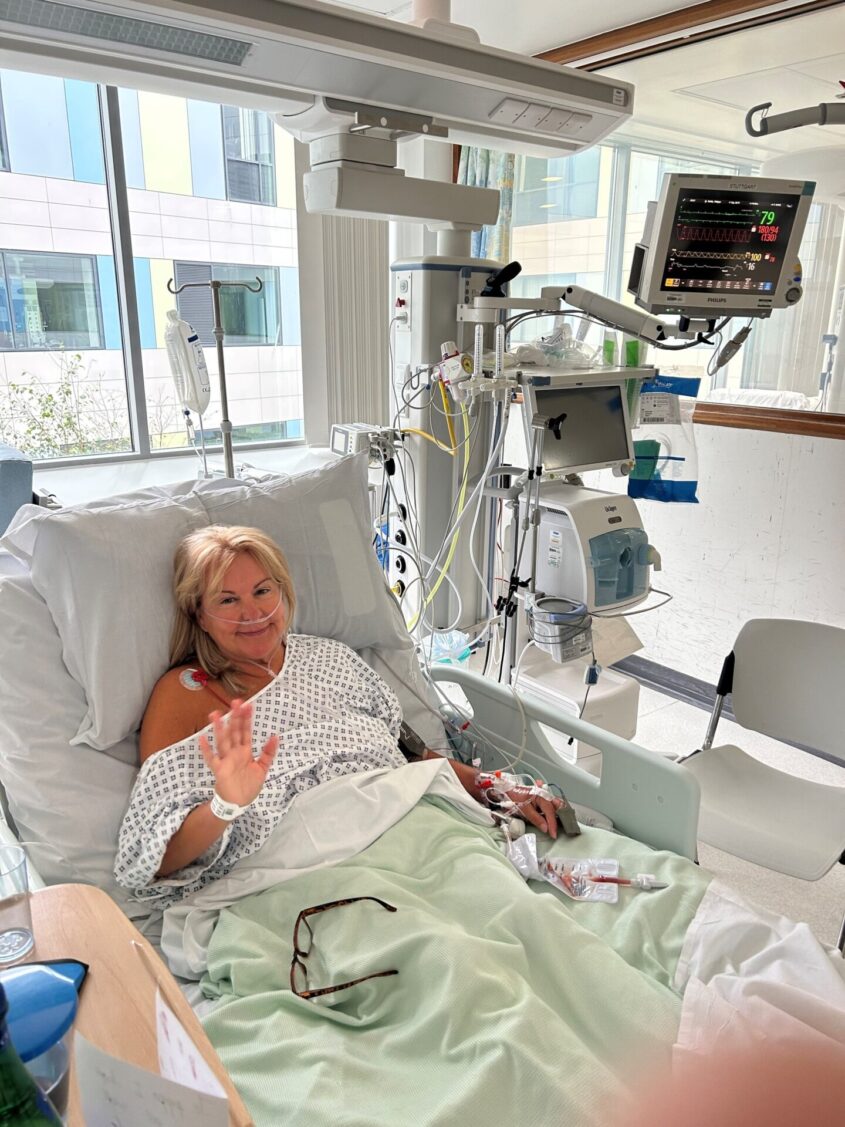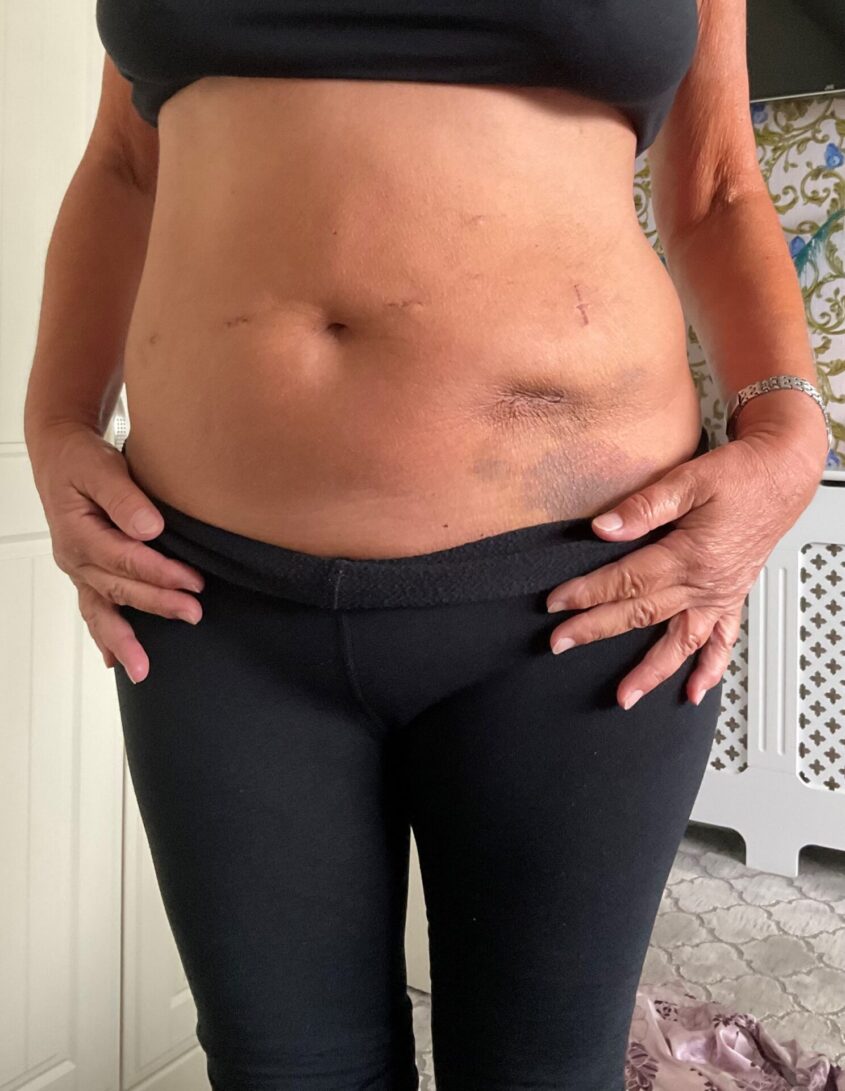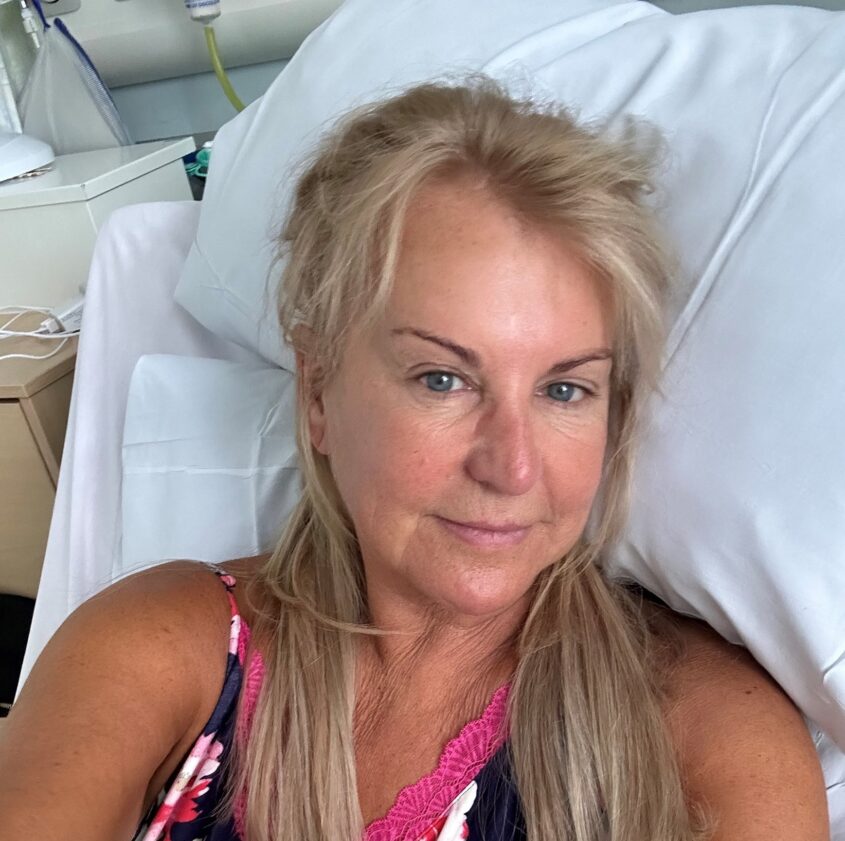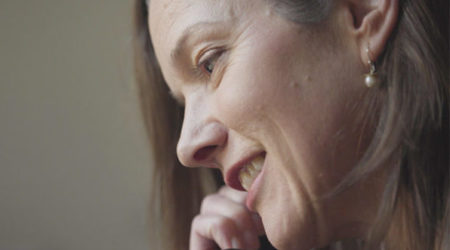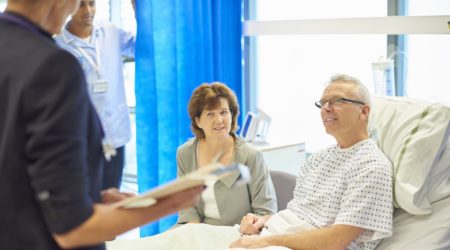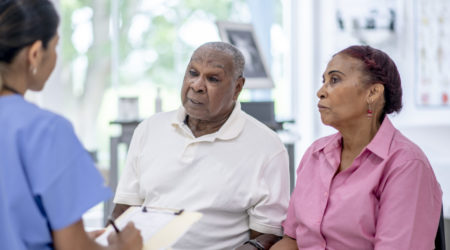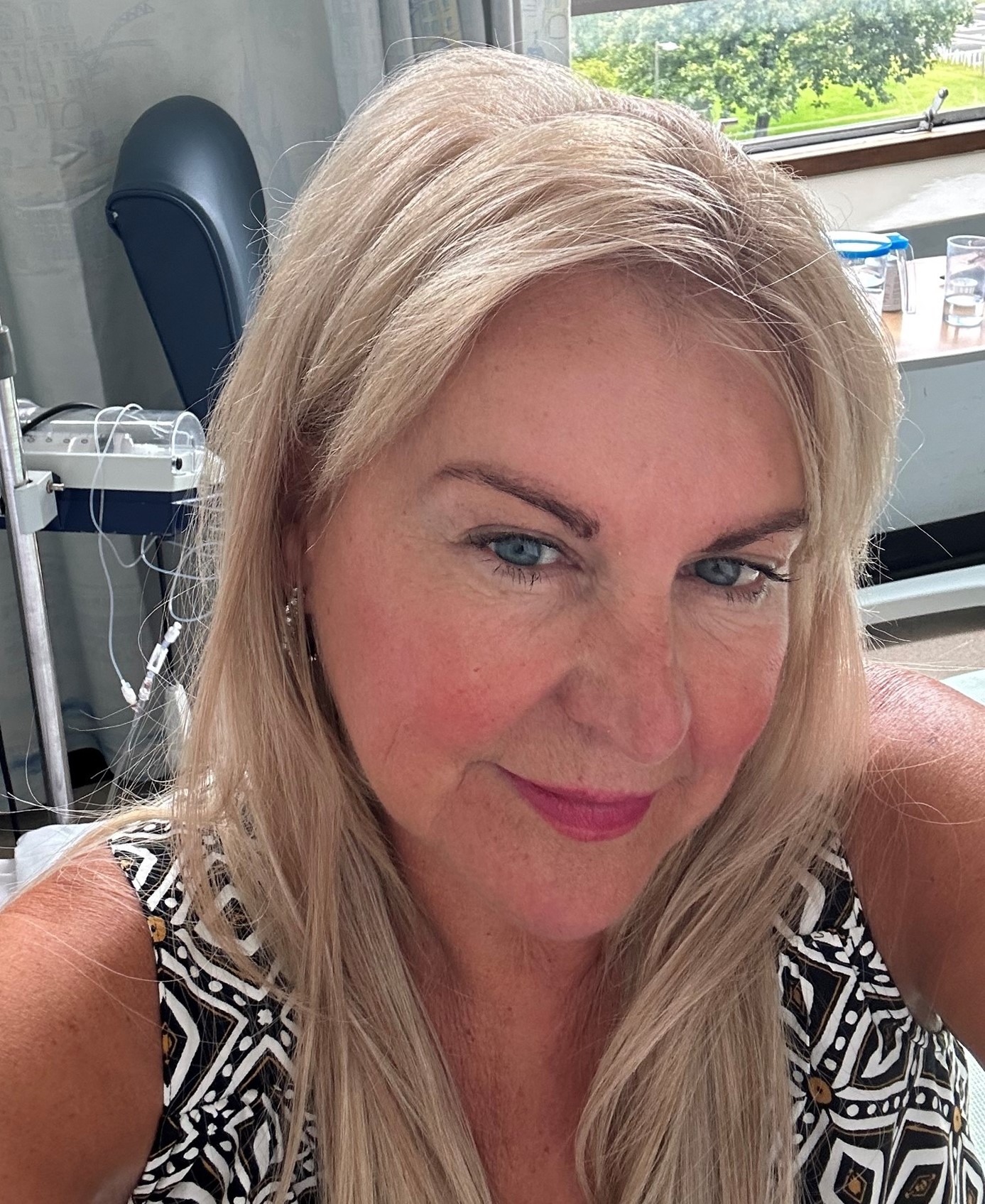

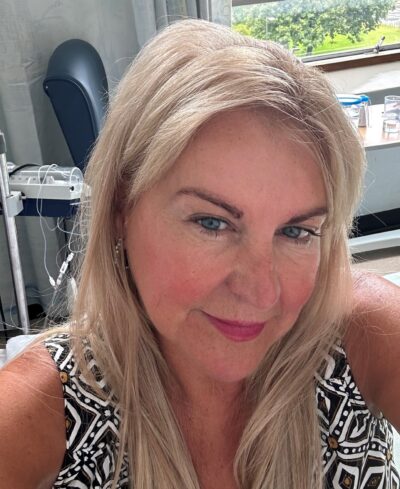

Pippa
Pippa was diagnosed with a pancreatic cyst in 2010. It was monitored for many years. When changes were spotted, Pippa had surgery and is now recovering well.
My story of hope
Diagnosis and management plan
From 2010 I had ongoing problems with indigestion and after an endoscopy at my local hospital scarring to my oesophagus was found. They believed it to be due to acid reflux and I was prescribed Lansoprazole. My doctor’s surgery referred me for a routine scan of my abdomen in 2012 to see if I still needed to take Lansoprazole. The scan highlighted a cyst within the tail of my pancreas, and I was referred to the hospital for more tests to be carried out.
I was sent an appointment for an Endoscopic Ultrasound (EUS) – guided Fine Needle Biopsy (FNB) to take a sample from my cyst. Prior to my procedure, the doctor sat down with my husband and I to explain the process. This put my mind completely at rest and allowed me to ask any questions I had especially in relation to the possibility of my cyst being cancerous. From the very beginning the doctor showed such professionalism, compassion and kindness.
The results of the endoscopy and biopsy showed a 15mm serous cystadenoma mucinous plug. The doctor said it would be in my best interests to have my cyst monitored, every year at first and then every 18 months. I had various MRI scans and EUS-FNB and my cyst remained stable with no worrisome features. However in 2019, a 3mm nodule in my gallbladder was also noted. All through this period the team gave me help, support and kindness. This included the consultants’ secretaries, who get things organised and sometimes go unnoticed.
Worrying changes to the cyst
In January 2023 I was invited for my surveillance follow up (EUS-FNB) appointment. When I came around after sedation the doctor asked to see me and explained to me in the most caring, empathetic way that although my cyst had shrunk in size the wall had become thickened, so a biopsy was taken to be tested. I asked if he thought it was now cancerous to which he said he could not say till we had the results.
I spent 2 weeks in a bubble feeling terrified and ill with worry. I was sent for an urgent scan. When my results came through the doctor rang me to alleviate my worries as everything had returned negative. He said due to the changes he felt best to now monitor me every 3 months.
At the end of May 2023, I attended the hospital for another (EUS-FNB). This time after coming around from sedation, the doctor told me that further changes had been noted and the cyst had changed. As the cyst was in close proximity to my spleen, a biopsy sample was not a safe option. The doctor clearly explained my options and it was decided that it was best to remove the cyst.
Finding out about my options
On the 6th of June I was invited to an appointment with a surgeon who specialises in robotic pancreatic surgery. The surgeon and his team took time to explain the choices to me including of continuing with 3 monthly surveillance, which we both agreed was not a sensible option as I felt I was living with a time bomb. The surgeon then showed me images of my cyst and discussed all factors and risks involving surgery including mortality rates. It was agreed that a robotic, laparoscopic, distal spleen preserving pancreatectomy would be performed.
The following week I returned to the hospital where I met with the ‘enhanced recovery after surgery’ team who explained the process prior to the surgery. I was also given information on a diet to start prior to surgery that would build me up for my operation and aid my recovery.
Pippa's surgery
My experience of robotic surgery
On Friday the 4th of August 2023 at 07:30, I was admitted for surgery. Although I was very nervous the surgeon completely reassured me and put my mind at ease saying that he would contact my husband, Darren, when the operation was complete to tell him how things went. During the meeting he also explained to me that the growth in my gallbladder had also changed and had grown in size and looked more sinister so it was agreed to remove my gallbladder at the same time.
My operation started at 09:30 and at 14:05, as promised, the surgeon contacted Darren to say everything went well. The tail of my pancreas, tumour and part of my splenic veins were removed along with my gallbladder. I came round from the anaesthesia and was taken to the High Dependency Unit where at 17.00 I was sitting up drinking water and feeling very well with regard to my operation.
Amazing staff and amazing recovery
The staff were outstanding and so caring. Darren came to see me that night and the next morning. He was so emotional as to how well I looked and was recovering. I had a catheter and was wired up to a machine administering fluids, pain relief that I pumped if needed and also oxygen. The physio team asked me to stand and walk with my attachments the length of the HDU ward which I did twice.
That afternoon, Saturday the 5th of August, I was moved to the ward. Once the tubes were removed, I was able to shower and get dressed. Being dressed and sitting up made me feel again so much better. I felt well enough and had the strength to walk on my own up and down the ward on numerous occasions chatting with the great team of nursing and support staff on the ward.
On Monday the 7th of August my surgeon came to see me to say that he was so pleased with my surgery and recovery that I could go home. What a huge feeling of relief, elation, emotion and gratitude I can’t begin to describe.
I’ve been given a second chance
I will not have my histology results until the 11th of September 2023 however I know due to a routine abdomen scan, diligent 11 year surveillance and minimally invasive robotic pancreatic surgery that I have been given a chance.
I feel early detection and ongoing surveillance is lifesaving. I am typing this 7 days after surgery. I am walking, visiting family, seeing my friends and apart from occasional tiredness I have no pain or symptoms what so ever. My operation sites are already healing so well. Family and friends look at me and cannot believe I have had major surgery and honestly neither can I.
My dream and HOPE for everyone in the future would be more pancreatic cancer education to general surgery and hospital doctors in order to understand and refer for routine abdominal scan, surveillance, early detection and robotic surgery.


